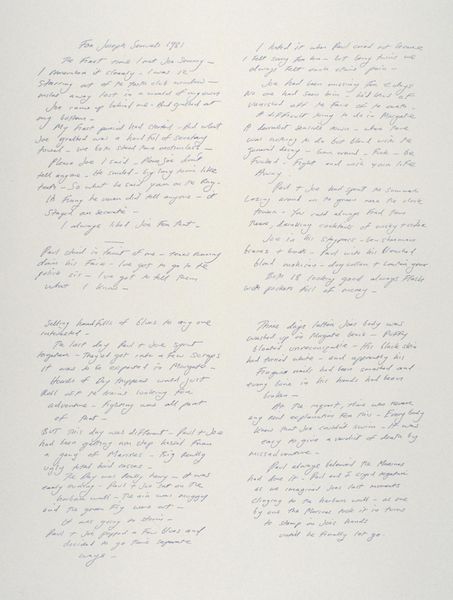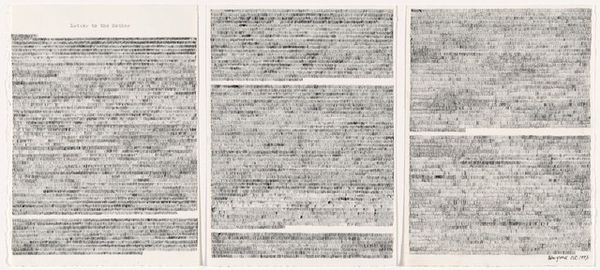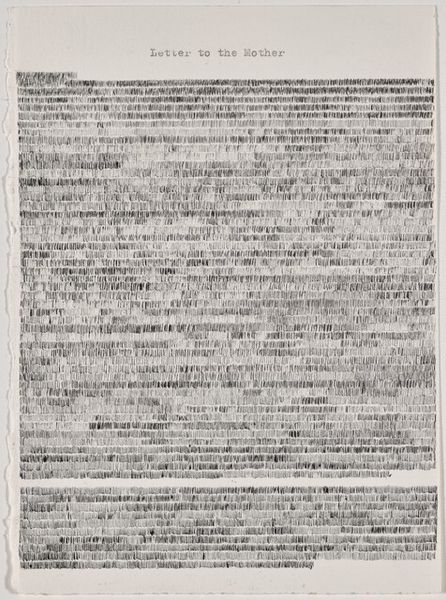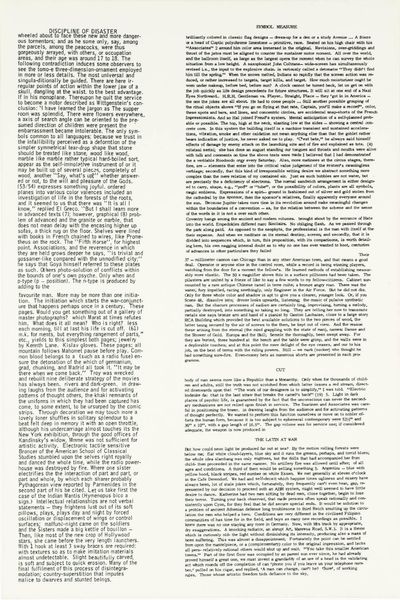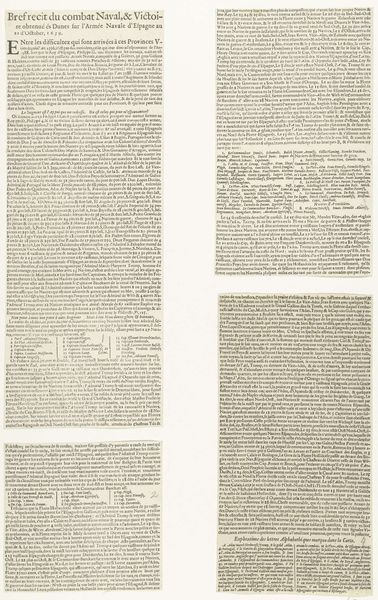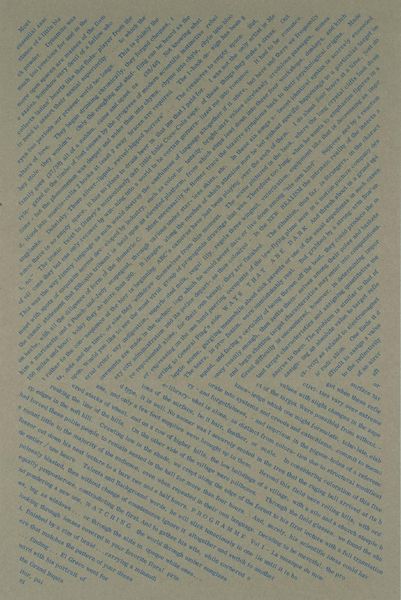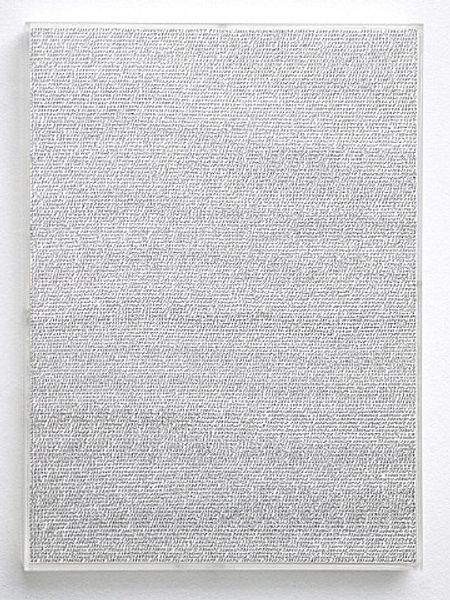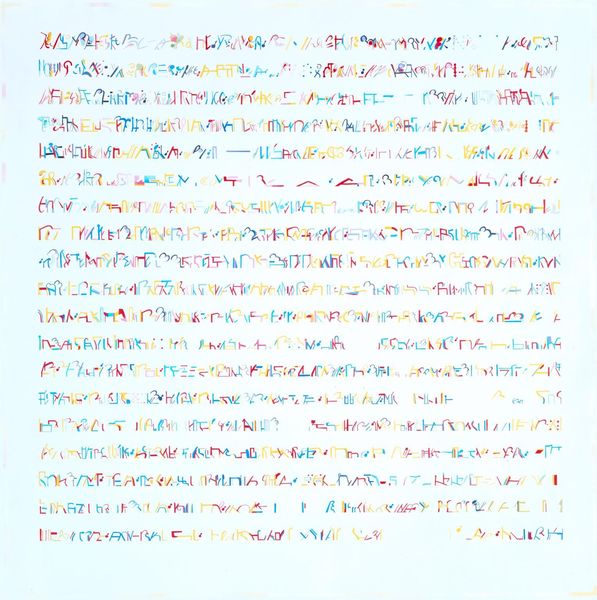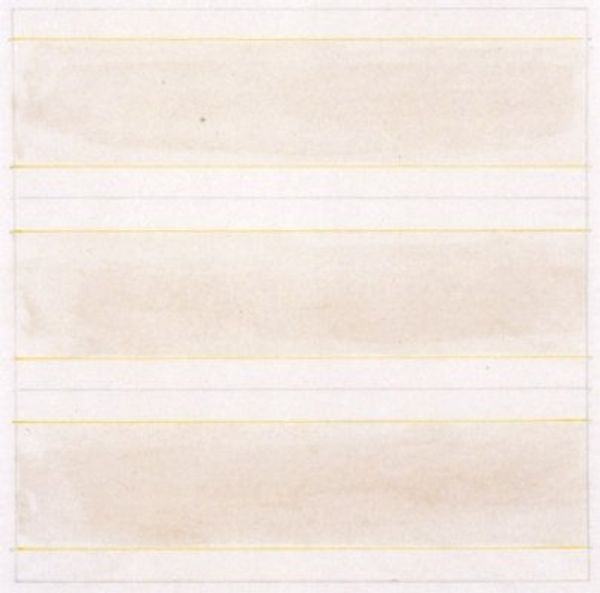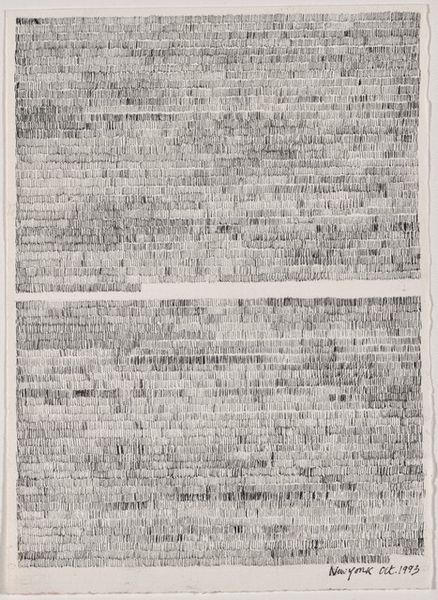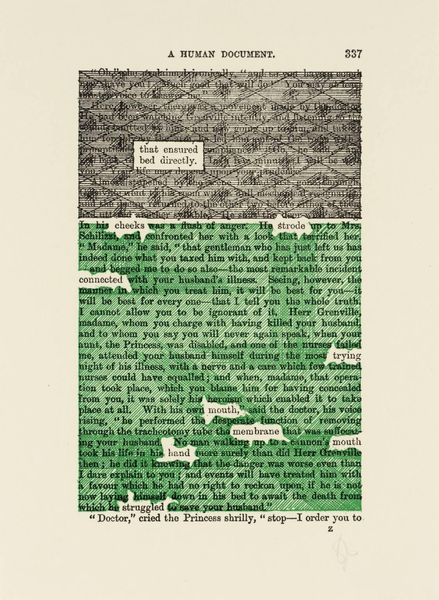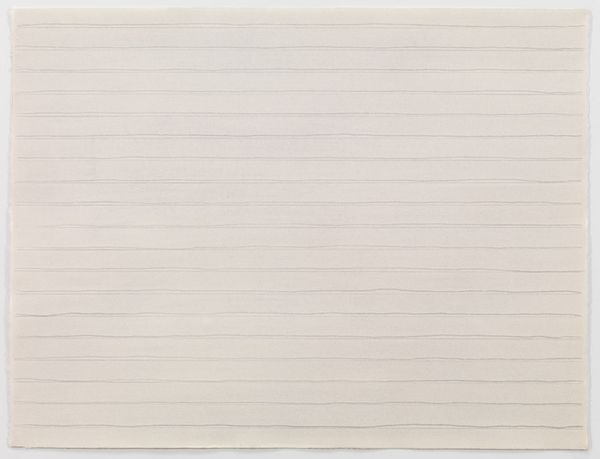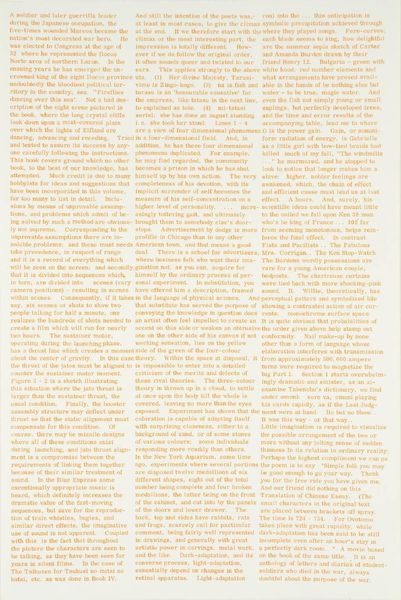
drawing, collage, paper, pen
#
drawing
#
contemporary
#
collage
#
self-portrait
#
conceptual-art
#
paper
#
text
#
example publication
#
newspaper layout
#
publication layout
#
image supporting text
#
line
#
pen
Copyright: Tracey Emin,Fair Use
Curator: Here we have Tracey Emin’s "C.V.," a work from 1995, combining drawing, collage, and text on paper. It is comprised of nine separate pages covered in her handwritten script. What is your first impression? Editor: Immediately, a sense of raw vulnerability. It’s like stumbling upon someone’s intimate diary laid bare, nine pages worth of life lived, confessed in messy, almost frenzied handwriting. Does it make you want to pick it up or avert your eyes? Both! Curator: The title itself, "C.V.", invites us to consider the very notion of how a life can be presented, commodified even. In art history, particularly with conceptual art, we often see this kind of reframing of everyday objects and experiences. Here, the mundane gets a deeply personal twist. Editor: Absolutely. A C.V. usually screams 'polished' and 'marketable'. This? It's defiantly, wonderfully not. It reads like an attempt to reclaim her own narrative. Each scribble and scratch almost pulsating with lived experiences and memories— a refreshing antidote to those curated online biographies we're all bombarded with these days. I can almost smell the ink. Curator: Emin has consistently engaged with themes of personal history, trauma, and confession in her work, challenging traditional notions of femininity and artistic authorship. "C.V." underscores the construction of identity and challenges societal expectations placed on women artists in the 90s. Editor: Right. Looking closer at the individual entries, it feels very fragmentary— a memory collage where she layers bits of childhood trauma with dreams and failures. It's an unflinching performance of 'self,' simultaneously captivating and discomforting. Does the format mimic clinical documents to undermine them? Is it more a raw emotional catharsis made physical through lines and ink? I find the overall form more akin to poetry in disguise. Curator: Exactly! By embracing a fragmented, highly personal style, Emin defies conventional historical narratives and the art market itself. "C.V." challenges these systems and reasserts individual expression and complex feelings as the cornerstone for something like an art work, and like her. Editor: This 'C.V.' isn’t about selling yourself, but about surviving yourself. That's what lingers with me— that sense of hard-won, brutally honest, cathartic self-definition through pen strokes and messy collage on paper. That kind of staying with me counts for so much more than just an evaluation of curriculum vitae.
Comments
No comments
Be the first to comment and join the conversation on the ultimate creative platform.
